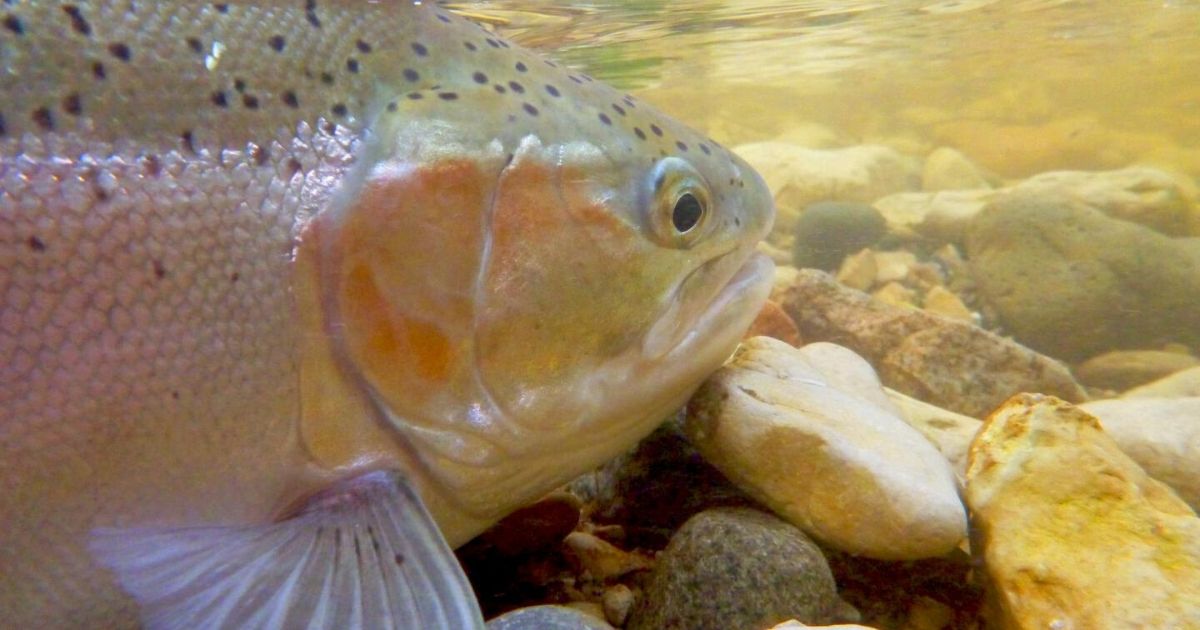Scientists have created a new database to help track the impacts of climate change on fish living in rivers, lakes and other inland waters throughout the world.
The Fish and Climate Change Database -- or FiCli (pronounced "fick-lee") -- is a searchable directory of peer-reviewed journal publications that describe projected or documented effects of climate change on inland fishes.
These wild animals are a vital source of food and income for many people, and an indicator of the health of global aquatic ecosystems. A better understanding of how climate change is affecting these fishes could aid in their future survival, informing conservation efforts.
The FiCli team published a detailed description of the database in Scientific Data, an open-access journal. The project was led by Trevor Krabbenhoft, a fish biologist at the University at Buffalo, and Bonnie Myers, a fish biologist at the U.S. Geological Survey (USGS) and PhD candidate at North Carolina State University.
"The Fish and Climate Change Database pulls information together in a way that people can meaningfully use it," says Krabbenhoft, PhD, assistant professor of biological sciences in the UB College of Arts and Sciences and the RENEW (Research and Education in eNergy, Environment and Water) Institute. "The idea is not just to document how fish have been affected by climate change, but to also provide information on management options that can help mitigate some of those effects."
Researchers, fisheries managers, conservationists, journalists and others can use FiCli to find scientific articles based on factors such as fish species, habitat type, location and type of climate change impact (such as a change in temperature or precipitation).
FiCli search results include journal article titles, instructions for accessing publications, and brief summaries of information such as how fish populations have responded to climate change and what management actions are recommended.
According to the paper in Scientific Data, FiCli "currently includes information for 53 freshwater fish families, 232 studies from over 47 countries, and 851 projected and 377 documented responses of individual species or assemblages to climate change."
Curators including Krabbenhoft, Myers and Abigail Lynch, PhD, a research fish biologist at the USGS National Climate Adaptation Science Center, will update the database as new studies are published. Users can also contact the team about peer-reviewed papers that are missing from the database and may be a good fit.
"The FiCli project grew, in a way, out of our need for a database as scientists," Krabbenhoft says. "We were trying to understand how climate affects fish, and we had a really hard time identifying the right papers. By synthesizing the available information on how climate change has already affected fish populations, it helps us refine our predictions for how fish are likely to be affected in the future. Hopefully we've created something that will be meaningful for other fishery biologists."
"As researchers, we often try to avoid 'reinventing the wheel' to save valuable time and resources. Compiling and synthesizing published scientific results is an important step in any research project. We hope FiCli serves as a time-saving, informative database that helps advance scientific understanding and management of the impacts of climate change on important aquatic resources and guides future climate adaptation efforts," says Myers, a research fish biologist at the USGS National Climate Adaptation Science Center and PhD candidate in the North Carolina State University Department of Applied Ecology and the North Carolina Cooperative Fish and Wildlife Research Unit, which is housed at the university.
Story by University at Buffalo



